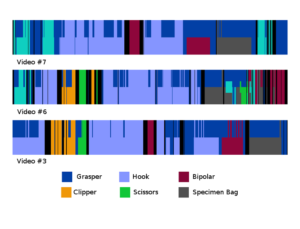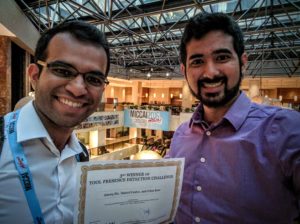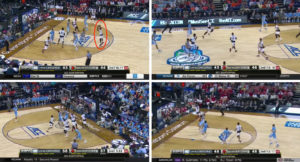Paper in M2CAI 2016 (MICCAI workshop) on “Fine-tuning Deep Architectures for Surgical Tool Detection and results of Tool Detection Challange”
Paper
[bibtex key= 2016-Zia-FDASTD]
Abstract
Understanding surgical workflow has been a key concern of the medical research community. One of the main advantages of surgical workflow detection is real-time operating room (OR) scheduling. For hospitals, each minute of OR time is important in order to reduce cost and increase patient throughput. Traditional approaches in this field generally tackle the video analysis using hand-crafted video features to facilitate the tool detection. Recently, Twinanda et al. presented a CNN architecture ’EndoNet’ which outperformed previous methods for both surgical tool detection and surgical phase detection. Given the recent success of these networks, we present a study of various architectures coupled with a submission to the M2CAI Surgical Tool Detection challenge. We achieved a top-3 result for the M2CAI competition with a mAP of 37.6.
- Project Website
- Presented at: Workshop and Challenges on Modeling and Monitoring of Computer Assisted Interventions (M2CAI) in conjunction with MICCAI 2016, the 19th International Conference on Medical Image Computing and Computer-Assisted Intervention held from October 17th to 21st, 2016 in Athens, Greece
- This entry was ranked 3rd in the M2CAI Surgical Tool Detection challenge.



